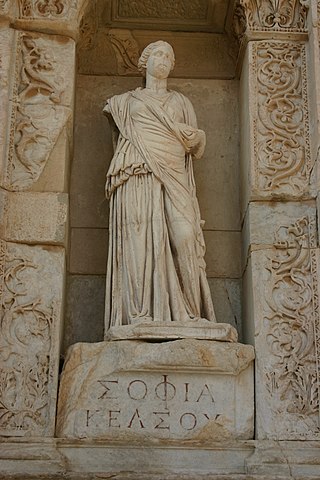Aanya, Anya, Ania or Anja is a given name. The names are feminine in most East European countries and unisex in several African countries.
Villani is an Italian surname that can also be found in France. Notable people with the surname include:

Sophia Magdalena of Denmark was Queen of Sweden from 1771 to 1792 as the wife of King Gustav III.
Ingrid is a feminine given name. It continues the Old Norse name Ingiríðr, which was a short form of Ingfríðr, composed of the theonym Ing and the element fríðr "beloved; beautiful" common in Germanic feminine given names. The name Ingrid remains widely given in all of Scandinavia, with the highest frequency in Norway. Norwegian usage peaked in the interbellum period, with more than 2% of newborn girls so named in 1920; popularity declined gradually over the 1930s to 1960s, but picked up again in the late 1970s, peaking above 1.5% in the 1990s.
Hagman is a Swedish surname. Notable people with the surname include:
Josephine is a female given name. It is the English version of the French name Joséphine, itself a female variant of the name Joseph, which is ultimately derived from the Hebrew name Yosef, meaning "he shall add/grow".

Princess Sophia Albertina of Sweden was the last Princess-Abbess of Quedlinburg Abbey, and as such reigned as vassal monarch of the Holy Roman Empire.

Sophia, also spelled Sofia, is a feminine given name, from Greek Σοφία, Sophía, "Wisdom". Other forms include Sophie, Sophy, and Sofie. The given name is first recorded in the beginning of the 4th century. It is a common female name in the Eastern Orthodox countries. It became very popular in the West beginning in the later 1990s and became one of the most popularly given girls' names in the Western world in the first decades of the 21st century.

Amalia is a female given name, derived from the Germanic root amal, with meanings "vigorous, active, work", specifically the woman's name Amalberga. Its popularity is attributed to the Belgian Saint Amalberga of Maubeuge. The origins of the name Amalia have often been associated with those of Emilia and Emily, both of which in fact originate from the Latin nomen Aemilia, or with Amalthea, which originated from the Greek name "tender goddess". In Greece, the name is celebrated on 10 July in honour of Saint Amalia.
Sophie is a feminine given name, a version of Sophia, meaning "Wisdom".

Anna is a feminine given name, the Latin form of the Greek: Ἄννα and the Hebrew name Hannah, meaning "favour" or "grace".
Émilie is a French female given name. It is the feminine form of the male name Émile.
Dorothea, also spelt Dorothee (German), Dorothée (French), and Dorotea, is a female given name from Greek Δωροθέα (Dōrothéa) meaning "god's gift". In English it is more commonly spelt Dorothy.
Sophia of Sweden, also Sophie - also (Swedish): Sofia - may refer to :

Countess Palatine Anna Sophia of Zweibrücken-Birkenfeld reigned as Princess-Abbess of Quedlinburg and, as such, she is referred to as Anna Sophia I. She was the author of a book of meditations, Der treue Seelenfreund Christus, first published in Jena in 1658.
Hedwig is a German feminine given name, from Old High German Hadwig, Hadewig, Haduwig. It is a Germanic name consisting of the two elements hadu "battle, combat" and wig "fight, duel". The name is on record since the 9th century, with Haduwig, a daughter of Louis the German. The name remained popular in German high nobility during the 10th and 11th centuries. Other medieval spellings include Hathuwic, Hathewiga, Hadewich, Hadewic, Hathwiga, Hadwich, Hatwig, Hadwig, Hediwig, Hedewiga, Hedewich, Hedewiih, Hatuuih, Hetvic, Haduwich, Hadawich, Hatuwig, etc. Forms such as Hadiwih, Hadewi, etc. suggest that the name is the result of a conflation of two separate names, one with the second element wig "fight", the other with the second element wih "hallowed".
Albertina is a feminine form of Albert in multiple languages.
This page is based on this
Wikipedia article Text is available under the
CC BY-SA 4.0 license; additional terms may apply.
Images, videos and audio are available under their respective licenses.





